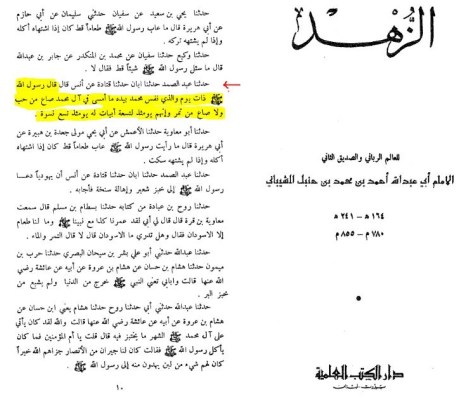The meaning of الآلُ (al-Aalu)
أهل الإنسان من الرجال، والنساء، والصبيان، الذين يشاركونه في النسب . وقيل : أتباعه، وإن لم يكونوا من أقاربه .انظر : بدائع الصنائع للكاساني، 7/350، الذخيرة للقرافي، 6/357، كشاف القناع للبهوتي، 1/358.“One’s male and female relatives and children; one’s kinsmen (blood relatives). And it is said: one’s followers, even if they are not blood-related.”
For Arabic speakers: an excellent break-down of the origin of the term آل:
Who are the آل of Muhmmad (ﷺ)?
In his جلاء الأفهام في فضائل الصلاة والسلام على خير الأنام, a treatise on the importance, virtues, and obligation of sending salutations upon the Prophet (ﷺ), Imam Ibn al-Qayyim al-Jawziyyah examines all the scholarly views regarding the definition of who the آل of Muhammad (ﷺ) are (he doesn’t even consider the Rafidi-one worth of mentioning as it is beyond foolish and weak).
 He then concludes that the strongest view is that the آل of Muhammad (ﷺ) are those for whom sadaqah is prohibited (which includes his wives).
He then concludes that the strongest view is that the آل of Muhammad (ﷺ) are those for whom sadaqah is prohibited (which includes his wives).
As for the evidences that supports this view:
حدثنا وكيع عن محمد بن شريك عن ابن أبي مليكة أن خالد بن سعيد بن العاص بعث إلى عائشة ببقرة فردتها وقالت: (إنا آل محمد لا نأكل الصدقة).المصنف – ابن أبي شيبة الكوفي – ج ٨ – الصفحة ٤٣٢Narrated with sahih sanad: “Khalid ibn Saeed ibn al-Aas sent a cow from the sadaqah to Aishah, so she sent it back and said: “We are the Aal of Muhammad. Sadaqah is not permissible for us.” (al-Musannaf by Ibn Abi Shaybah, vol. 8, p 432)
قال الشيخ محمد بن عبد الوهاب: الصحيح أن آل محمد هم أهل بيته والصحيح أن أزواجه من آله. الدرر السنية (1/ 141)
“The correct view is that the Aal of Muhammad (ﷺ) are the people of his household (Ahl-Bayt) and the correct view is that his (ﷺ) wives are from his Aal. (al-Durar al-Saniya 141/1)
This view is supported not only by the narration of Aishah (may Allah be pleased with her) but also by prophetic Sahih Hadith
Abu Humaid al-Sa’idi (May Allah be pleased with him) reported:The Companions of the Messenger of Allah (ﷺ) said: “O Messenger of Allah! How should we supplicate for you?” He (ﷺ) replied, “Say:
للّهُـمَّ صَلِّ عَلـى مُحمَّـدٍ وَعَلـى أَزْواجِـهِ وَذُرِّيَّـتِه، كَمـا صَلَّيْـتَ عَلـى آلِ إبْراهـيم . وَبارِكْ عَلـى مُحمَّـدٍ وَعَلـى أَزْواجِـهِ وَذُرِّيَّـتِه، كَمـا بارِكْتَ عَلـى آلِ إبْراهـيم . إِنَّكَ حَمـيدٌ مَجـيد
“O Allah, bestow Your favor on Muhammad and upon his WIVES and progeny as You have bestowed Your favor upon the AAL (آل) of Ibrahim. And bless Muhammad and his WIVES and progeny as You have blessed the AAL (آل) of Ibrahim, You are full of praise, Most Glorious.” (Bukhari and Muslim)
Also, in an authentic narration from al-Zuhd by Ahmad:
حَدَّثَنَا عَبْدُ الصَّمَدِ، حَدَّثَنَا أَبَانُ، حَدَّثَنَا قَتَادَةُ، عَنْ أَنَسٍ قَالَ: قَالَ رَسُولُ اللَّهِ ذَاتَ يَوْمٍ: ” وَالَّذِي نَفْسُ مُحَمَّدٍ بِيَدِهِ مَا أَمْسَى فِي آلِ مُحَمَّدٍ صَاعٌ مِنْ حَبٍّ، وَلا صَاعٌ مِنْ تَمْرٍ ” وَإِنَّهُمْ يَوْمَئِذٍ لَتِسْعَةُ أَبْيَاتٍ، لَهُ يَوْمَئِذٍ تِسْعُ نِسْوَةٍ
Anas said: The Messenger of Allah (ﷺ) said one day: “By he who holds the life of Muhammad in his hand, the Aal (آل) of Muhammad never went to sleep at night having a Sa’ of seeds or a Sa’ of dates.” And they (his family) were nine houses, he had nine women. [al-Zuhd, page 10]
And there are many more sahih narrations proving that the wives are from the آل of the Prophet (ﷺ):
“إن الصدقة لاتحل لمحمد ولا لآل محمد”


